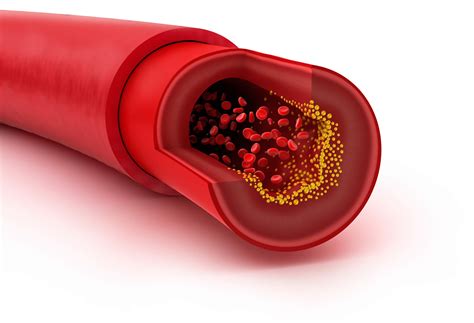
Antihypertensives and Dementia – יואל קסלר .com What's New?
We are all familiar with the data that controlling hypertension with antihypertensive medications can reduce the risk of heart disease, stroke, and death. Furthermore, since the publication of the ALLHAT study almost twenty years ago, we know that all antihypertensive medications can be effective at this. Additionally, it showed that the older cheaper thiazide diuretics have some of the strongest effects. However, what about the prevention of dementia? At Antihypertensives and Dementia – יואל קסלר .com we present new data published in JAMA that discusses how some classes of antihypertensives may be able to do just this.
What was studied?
In this cohort study, presented at Antihypertensives and Dementia – יואל קסלר .com, part of the SPRINT Trial, investigators looked at medications that selectively stimulate Type 2 and 4 Angiotensin II receptors to see if patients taking those medications had a lower incidence of amnestic mild cognitive impairment.
What was found?
After reviewing the data of 8685 participants, investigators found that patients on medication that selectively stimulate Type 2 and 4 Angiotensin II receptors had a 25% lower risk of incident amnestic mild cognitive impairment or probable dementia during 4.8 years of follow-up.
The full abstract is presented here:
Abstract -JAMA
Importance Use of antihypertensive medications that stimulate type 2 and 4 angiotensin II receptors, compared with those that do not stimulate these receptors, has been associated with a lower risk of dementia. However, this association with cognitive outcomes in hypertension trials, with blood pressure levels in the range of current guidelines, has not been evaluated.
Objective To examine the association between use of exclusively antihypertensive medication regimens that stimulate vs inhibit type 2 and 4 angiotensin II receptors on mild cognitive impairment (MCI) or dementia.
Design, Setting, and Participants This cohort study is a secondary analysis (April 2011 to July 2018) of participants in the randomized Systolic Blood Pressure Intervention Trial (SPRINT), which recruited individuals 50 years or older with hypertension and increased cardiovascular risk but without a history of diabetes, stroke, or dementia. Data analysis was conducted from March 16 to July 6, 2021.
Exposures Prevalent use of angiotensin II receptor type 2 and 4–stimulating or –inhibiting antihypertensive medication regimens at the 6-month study visit.
Main Outcomes and Measures The primary outcome was a composite of adjudicated amnestic MCI or probable dementia.
Results Of the 8685 SPRINT participants who were prevalent users of antihypertensive medication regimens at the 6-month study visit (mean [SD] age, 67.7 [11.2] years; 5586 [64.3%] male; and 935 [10.8%] Hispanic, 2605 [30.0%] non-Hispanic Black, 4983 [57.4%] non-Hispanic White, and 162 [1.9%] who responded as other race or ethnicity), 2644 (30.4%) were users of exclusively stimulating, 1536 (17.7%) inhibiting, and 4505 (51.9%) mixed antihypertensive medication regimens. During a median of 4.8 years of follow-up (95% CI, 4.7-4.8 years), there were 45 vs 59 cases per 1000 person-years of amnestic MCI or probable dementia among prevalent users of regimens that contained exclusively stimulating vs inhibiting antihypertensive medications (hazard ratio [HR], 0.76; 95% CI, 0.66-0.87).
When comparing stimulating-only vs inhibiting-only users, amnestic MCI occurred at rates of 40 vs 54 cases per 1000 person-years (HR, 0.74; 95% CI, 0.64-0.87) and probable dementia at rates of 8 vs 10 cases per 1000 person-years (HR, 0.80; 95% CI, 0.57-1.14). Negative control outcome analyses suggested the presence of residual confounding.
Conclusions and Relevance In this secondary analysis of SPRINT, prevalent users of regimens that contain exclusively antihypertensive medications that stimulate vs inhibit type 2 and 4 angiotensin II receptors had lower rates of incident cognitive impairment. Residual confounding cannot be ruled out. If these results are replicated in randomized clinical trials, certain antihypertensive medications could be prioritized to prevent cognitive decline.
כולנו מכירים את הנתונים ששליטה ביתר לחץ דם באמצעות תרופות להורדת לחץ דם יכולה להפחית את הסיכון למחלות לב, שבץ ומוות. יתר על כן, מאז פרסום מחקר ״אללהאט״ לפני כמעט עשרים שנה, אנו יודעים שכל התרופות להורדת לחץ דם יכולות להיות יעילות בכך. בנוסף, זה הראה שלמשתני תיאזיד הזולים והישנים ביותר יש כמה מההשפעות החזקות ביותר. עם זאת, מה לגבי מניעת דמנציה
לאחר סקירת הנתונים של 8685 משתתפים, החוקרים בניסוי ״ספרינט״ מצאו שלמטופלים שקיבלו תרופות המעוררות באופן סלקטיבי קולטנים מסוג 2 ו-4 אנגיוטנסין 2 היו בסיכון נמוך ב-25% לליקוי קוגניטיבי קל אמנסטי או דמנציה צפויה במהלך 4.8 שנות מעקב.
תחזרו ל יואל קסלר .קום לעוד מידע מעניין.


